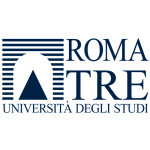Ainscow M. (2008), Speech by Mel Ainscow at the UNESCO Conference in Geneva.
Booth T. e Ainscow M. (2002), Index for inclusion: developing learning and participation in schools, CSIE, traduzione 2008, L’Index per l’inclusione, Trento, Erickson.
Booth T. e Ainscow M. (2011), Index for inclusion: developing learning and participation in schools, CSIE, traduzione 2012, NuovoIndex per l’inclusione. Percorsi di apprendimento e partecipazione a scuola, Carocci Faber, Roma.
Baglieri, S. (2016). Toward unity in school reform. What DisCrit contributes to Multicultural and Inclusive Education. In Annamma, S., Connor, D., Ferri, B. (Eds.). DisCrit: Diability Studies and Critical Race Theory in Education, New York: Teachers College Press.
Campbell, E. (2012). Teacher Agency in Curriculum Contexts. Curriculum Inquiry, 42 (2), pp. 183-190.
Armstrong, F., Armstrong, D. and Barton, L. (1999.) Inclusive education: policy, contexts and comparative perspectives. Buckingham: Open University Press.
Baglieri, S., Valle, J.W., Connor, D.J. and Gallagher, D.J., (2011). ‘Disability Studies in Education: The Need for a Plurality of Perspectives on Disability’ Remedial and Special Education, 32 (4), 267–278.
Ball, S.J., Maguire, M., Braun, A., (2012) How Schools do Policy. Policy enactments in secondary schools. Routledge: London and New York.
Barton, L. (1986). The politics of special educational needs. Disability, Handicap & Society, 1(3), 273-290.
Barton, L. (1996). Politics, marketisation and the struggle for inclusive education. Hitotsubashi journal of social studies. 1996 (July); 28 (1), 29 42.
Barton L. (2003),Inclusive education and teacher education. A basis for hope or a discourse of delusion, Institute of Education, University of London 20 Bedford Way, www.ioe.ac.uk.
Barton L. (2005), Emancipatory research and disabled people: some observations and questions Educational Review, Vol. 57, No. 3, pp.317-327.
Barton L. (2005), Special Educational Needs: an alternative look. (A Response to Warnock M. 2005: Special |Educational Needs – A New Look).
Booth, T. and Ainscow, M. (2002), Index for Inclusion. Developing learning and participation in schools. (Revised Edition). Bristol: Centre for Studies on Inclusive Education (CSIE).
Cigman (R., Ed.), (2005) Included or excluded. The challenge of the mainstream for some SEN children. Oxon: Routledge.
Cigman R. 2007 Included or excluded? The challenge of the Mainstream for Some sepcial educational needs children London Routledge.
Goodley, D (2007),For Inclusion: Towards a critical pedagogy with marginal ised learners.
Meijer, C. (2010). Inclusive Education: Facts and Trends. Paper presented at the International Conference – Inclusive Education: A Way to Promote Social Cohesion, Madri.
Mitchell D. (a cura di) (2005), Contextualizing inclusive education: Evaluating old and new international perspectives,London-New York, Routledge.
Mock D e Kauffman J (2005) The delusion of full inclusion in J. Jacobson, R. Foxx, J Mulick (a cura di) Controversial therapies for developmental disabilities: fad, fashion and science in professional practice. Mahwah, NJ: Lawrence Erlbaum Associates.
Moore, M., e Slee, R., (2012) Disability Studies, Inclusive Education & Exclusion.In: Routledge Handbook of Disability Studies. Routledge, London, pp. 225-239. ISBN 978-0415574.
Skrtic T., (1991) The Special Education Paradox: Equity as the Way to Excellence. Harvard Educational Review: July 1991, Vol. 61, No. 2, pp. 148-207.
Simons M. e Masschelein J. (2005), Inclusive education for exclusive pupils: A Critical analysis of ,wthe government of the exceptional.In S. Tremain (a cura di), Foucault and the government of disability, Ann Arbor, MI, Michigan University Press.
Slee, R., (2011) The Irregular school. Exclusion, schooling and inclusive education. London and New York: Routledge.
Slee R. (2012), How do we make inclusive education happen when exclusion is a political predisposition?, “International Journal of Inclusive Education”, 26 (2), pp. 1-12.
Thomas, G., & Loxley, A. (2001). Deconstructing Special Education and Constructing Inclusion. Buckingham, Philadelphia: Open University Press.
Tomlinson, S. (1982). A sociology of special education. London, Boston, Henley: Routledge & Kegan Paul.
Tomlinson, S., (2017) A sociology of special and inclusive education. Routledge: London.
